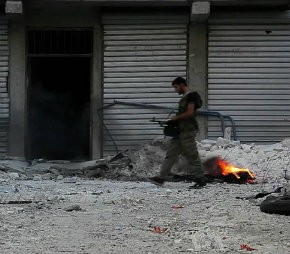Deciding on Syria

When President Obama went before the nation on September 10 to make the case for a military strike against Syria, he knew he was talking to a war-weary nation. He knew Americans are deeply reluctant to get involved in another Middle East conflict and are skeptical of claims about weapons of mass destruction.
Obama stressed that his plan was not to take the nation to war but to enforce an international prohibition against the use of chemical weapons. The international community has been working for over a century to end the use of such weapons, he said. By gassing his own people, Syria’s president Bashar Assad had violated the moral ground rules of war. If Assad were to go unpunished, Obama said, he would be tempted to use these weapons again, and other leaders would be further tempted down the same path. Eventually, chemical weapons would endanger United States forces.
The argument is clear, Obama’s instinct to punish Assad is understandable, and Assad’s savagery can hardly be overstated. Nevertheless, huge questions about a military strike remain unanswered: Won’t a strike inevitably put the United States on the road to greater involvement? Why bother to strike Syria if the attack will not inflict serious damage on Assad and eliminate his weapons program? If Assad were to use chemical weapons again, wouldn’t the United States be obliged to act again? As brutal as Assad is, aren’t the rebels he is fighting an even greater threat to stability in the Middle East?
In the face of such grave and multiple doubts and with the unpredictable outcome of any act of war, American military action against Syria is unwarranted.
The unexpected emergence of a plan hatched by Russia to have Syria’s chemical weapons secured by the United Nations points to a better approach. Whether Russia and Syria will follow through remains to be seen, and it won’t be easy for international forces to gain access to and secure chemical weapons in the midst of a ferocious civil war.
Nevertheless, a diplomatic response, however complicated, is far superior to a military one. And if the international norm against chemical weapons is to be plausibly enforced, then it can only be done by the international community, not by the United States acting alone.




